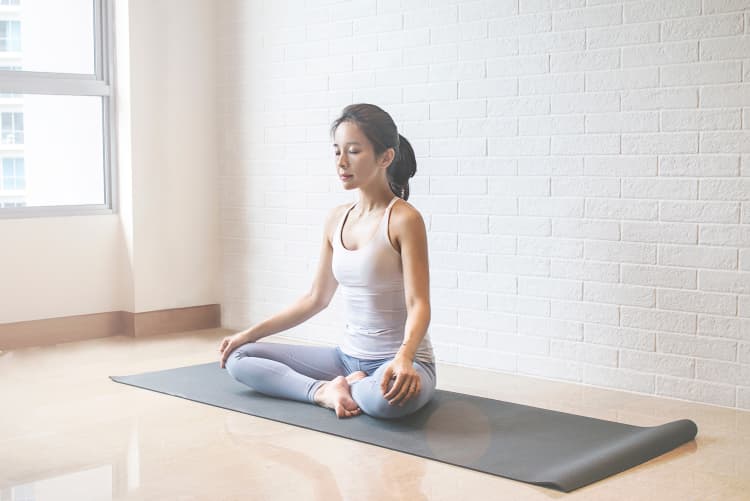A person with anxiety may experience bodily symptoms of anxiety without experiencing the psychological ones. He is so used to feeling anxious that he accepts it as part of his lifestyle or personality, whereas the body still reacts to the stressful aspects of his life and hence he still has bodily discomfort.

Anxiety can manifest in many ways and it can certainly show up in the form of physical symptoms. Below is a list of the physical symptoms of anxiety:
- Stomach pain, nausea, or digestive trouble
- Headache
- Insomnia or other sleep issues (waking up frequently, for example)
- Weakness or fatigue
- Rapid breathing or shortness of breath
- Pounding heart or increased heart rate
- Sweating
- Trembling or shaking
- Muscle tension or pain
Some people might have more cognitive or emotional symptoms of anxiety, others might have predominantly physical symptoms. Common physical symptoms of anxiety include chest pain or palpitations, a racing heart, gastrointestinal issues, light-headedness, dizziness, shortness of breath, and hyperventilation.
Dyspepsia, a gastrointestinal disorder linked to anxiety that causes pain in the upper stomach and a feeling of being full prematurely. It has always been difficult for people with anxiety to eat when they are nervous. Anxiety seems to be able to interfere with motor function of the stomach. Normally when a person starts eating, the proximal stomach is going to relax so the stomach can act as a reservoir to accommodate all the incoming food. But for some people with anxiety, this relaxation does not happen as it should.
Anxiety can also exacerbate the sensitivity of an already delicate stomach.
Anxiety, the body’s response to stress, is how the body alerts a person to threats and helps him get ready to deal with the challenges. This is called the fight-or-flight response. Tensed muscles may prepare a person to get away from danger quickly, but muscles that are constantly tense can result in pain, tension headaches and migraines.
The hormones adrenaline and cortisol are responsible for increased heartbeat and breathing, which can help when facing a threat. But these hormones also affect digestion and blood sugar.




